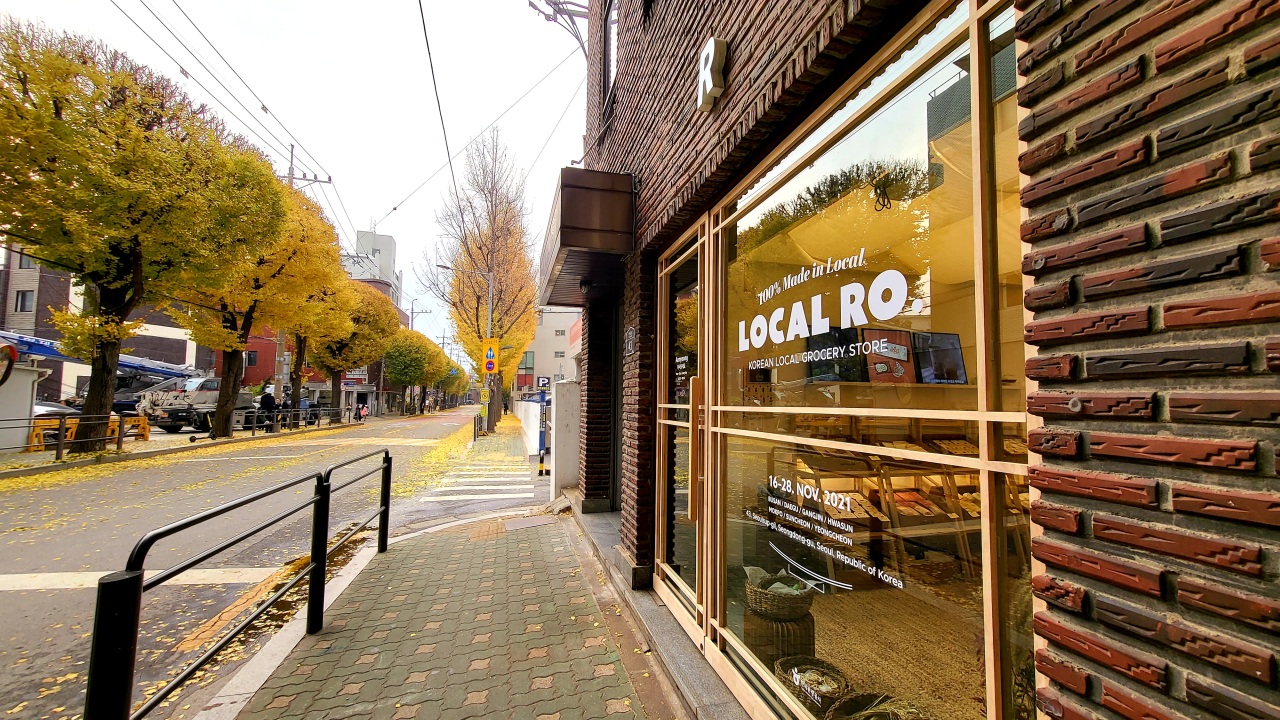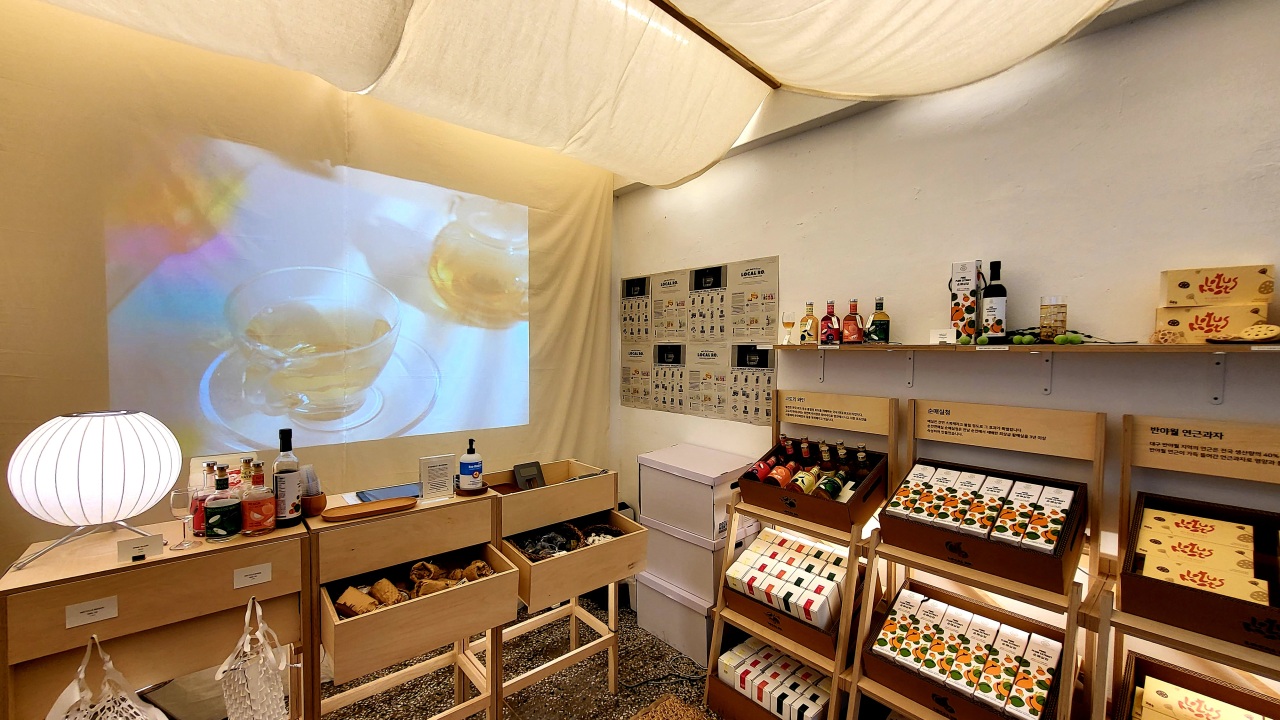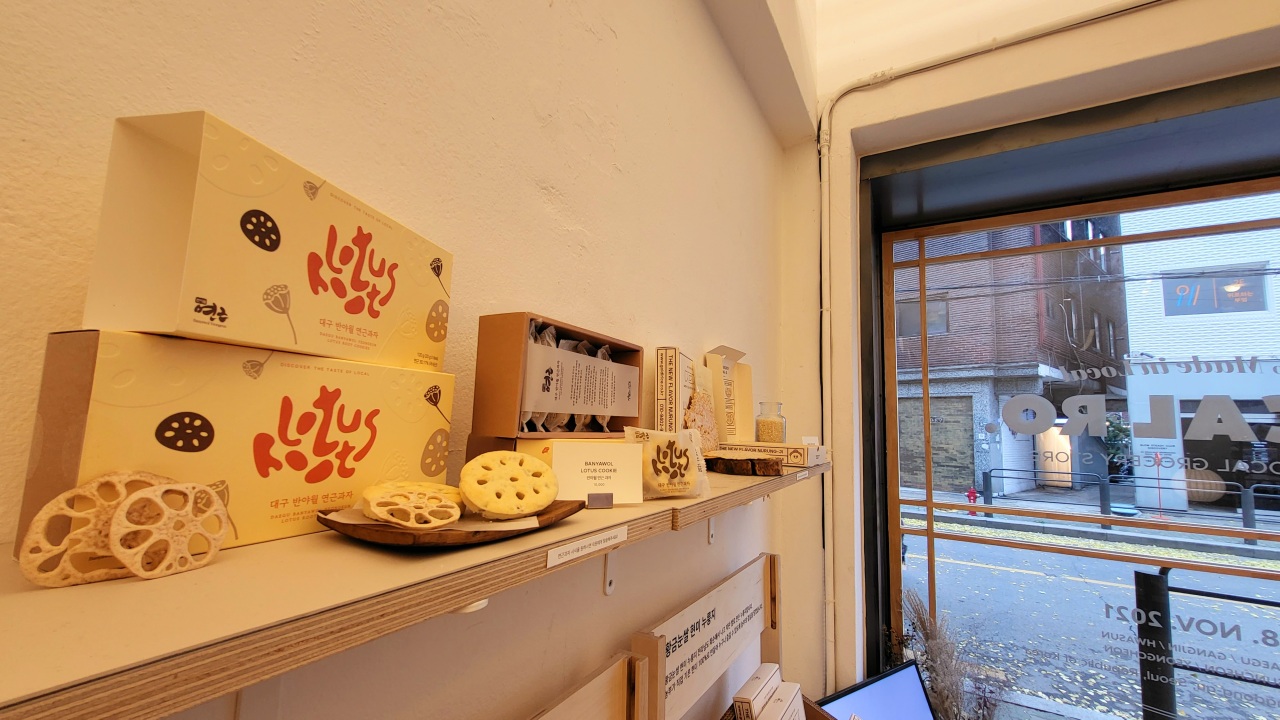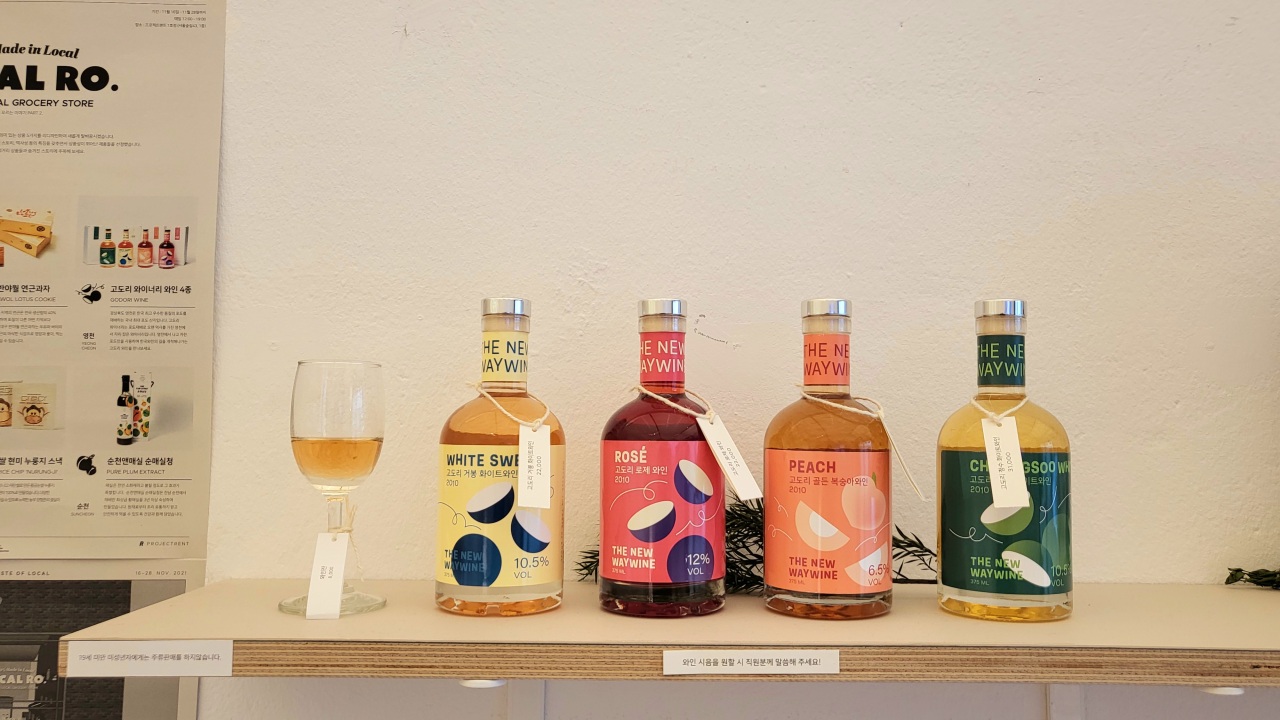Not so provincial: Hip packaging lends air of sophistication to regional specialties
By Kim Hae-yeonPublished : Nov. 22, 2021 - 16:38

Localro, a popup store located in Seongsu-dong, a hip neighborhood in eastern Seoul with emerging artists and vibrant flea markets, displays local food products in neatly designed packaging. Since its opening on Nov. 16, the store has steadily attracted passersby who had no prior knowledge of the store, but ended up leaving with a handful of goods.
The 13-day popup event is organized by the Korea Tourism Organization and run by Project Rent, an offline platform marketing company, with aims to open up markets for local food products from Daegu and South Jeolla Province, while raising awareness of local options to individuals.
As part of the “Korea Total Tour Package” project initiated by the Culture Ministry, the event supports local industries that possess unique charm in products with distinctive regional identities, but are not reachable to consumers due to a weak distribution structure and lack of competitiveness compared to similar products sold by commercial brands with big names. The popup event works as an accelerator to help them make a safe landing in the market.
The 13-day popup event is organized by the Korea Tourism Organization and run by Project Rent, an offline platform marketing company, with aims to open up markets for local food products from Daegu and South Jeolla Province, while raising awareness of local options to individuals.
As part of the “Korea Total Tour Package” project initiated by the Culture Ministry, the event supports local industries that possess unique charm in products with distinctive regional identities, but are not reachable to consumers due to a weak distribution structure and lack of competitiveness compared to similar products sold by commercial brands with big names. The popup event works as an accelerator to help them make a safe landing in the market.

In September, the KTO chose five local products based on local characteristics and commercial value. The five local products are: the Banyawol lotus cookie from Daegu, which produces 40 percent of domestic lotus root; Yeongcheon’s Godori wine, named after the village where it is grown; Gangjin’s Wolsan tteock-cha, in which tea leaves are ground like glutinous rice cakes; Hwanggeumnunssal nurungji, crispy rice chips made from pure brown rice harvested in the Hwasun region; and Suncheon-N-maesil, pure plum extract from Suncheon that has been aged at least three years.
“The word ‘locality’ today has huge potential in the market,” Choi Weon-seok, CEO of Project Rent, told The Korea Herald on Friday. “Unfortunately, in Korea local food products are commonly misunderstood to be of poor quality, unable to be sold at department stores, whereas private-owned groceries and shops are disinterested from the beginning, thinking that local goods inevitably run on a thin margin.”
Choi explained how operating Localro can help to reposition the value of local products, nurturing a reasonable price structure for them to have equal share in market distribution. In the process, excessive packaging is reduced to attract eco-conscious buyers who wish to pursue options that do less harm to the environment. Ultimately, the goal is for local food product brands to survive and grow on their own.
“The word ‘locality’ today has huge potential in the market,” Choi Weon-seok, CEO of Project Rent, told The Korea Herald on Friday. “Unfortunately, in Korea local food products are commonly misunderstood to be of poor quality, unable to be sold at department stores, whereas private-owned groceries and shops are disinterested from the beginning, thinking that local goods inevitably run on a thin margin.”
Choi explained how operating Localro can help to reposition the value of local products, nurturing a reasonable price structure for them to have equal share in market distribution. In the process, excessive packaging is reduced to attract eco-conscious buyers who wish to pursue options that do less harm to the environment. Ultimately, the goal is for local food product brands to survive and grow on their own.


“Another intention we have for potential foreign consumers is to let the stories behind local products be heard, such as the origins and detailed production process of regional ingredients. Foreigners interested in the products would then naturally be willing to visit the local regions, getting to know the local areas of Korea better through food.” Choi added.
The KTO further plans to form partnerships with distributors to translate product stories into multiple languages and reach global consumers.
The Localro popup store will continue through Sunday. Afterwards, it will move to Lotte Department Store’s lifestyle living shop, Sisihoshi, for continued promotion and sales.
By Kim Hae-yeon (hykim@heraldcorp.com)
The KTO further plans to form partnerships with distributors to translate product stories into multiple languages and reach global consumers.
The Localro popup store will continue through Sunday. Afterwards, it will move to Lotte Department Store’s lifestyle living shop, Sisihoshi, for continued promotion and sales.
By Kim Hae-yeon (hykim@heraldcorp.com)








![[KH Explains] How should Korea adjust its trade defenses against Chinese EVs?](http://res.heraldm.com/phpwas/restmb_idxmake.php?idx=644&simg=/content/image/2024/04/15/20240415050562_0.jpg&u=20240415144419)











![[Today’s K-pop] Stray Kids to return soon: report](http://res.heraldm.com/phpwas/restmb_idxmake.php?idx=642&simg=/content/image/2024/04/16/20240416050713_0.jpg&u=)